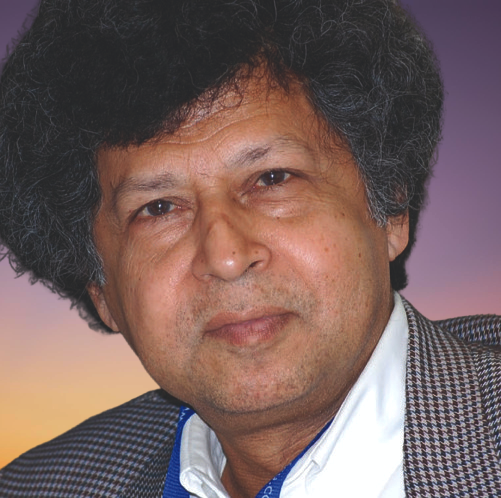Column

Bangladesh has transformed overnight. Just a month ago, the idea that the dictator-once seemingly untouchable-could be swept away by a tide of public outrage was unthinkable. This ruler had not only seized control of every lever of power but had also gripped the national psyche with an iron fist.
History reminds us that even the mightiest rulers eventually fall. The arrogance of unchecked power and the ruthless suppression of dissent breed hubris and a dangerous blindness. To paraphrase Arnold Toynbee's observation, a tyrant's downfall often comes not from an external force but from self-inflicted collapse. In his words, civilizations die by suicide, not by murder.
This is precisely what happened in Bangladesh. The tyrant, now fallen and exiled, committed political suicide. Sheikh Hasina's regime thrived on state-sponsored brutality, supported by a cadre of opportunists, more appropriately collaborators, who unconditionally stood by her. Among them were bureaucrats, politicians of all stripes, businessmen, civil society figures, cultural elites, and, yes, journalists, too. Some feasted directly on the spoils of power, while others- among them loyal intellectuals-settled for mere scraps, placated by the illusion of upholding the ideals of the Liberation War. Whenever criticism arose, even in private, it was swiftly silenced by invoking the regime's supposed commitment to the war's legacy, reinforcing the notion that the only alternative was religious fundamentalism.
The simple truth-that a regime clinging to power through ruthless brutality could never genuinely embody the spirit of the Liberation War-was willfully ignored. It's fair now to hold this complicit group responsible for enabling the tyrant's unchecked reign.
In post-independence Bangladesh, those clinging to power were mostly aging figures from a bygone century. Despite multiple transfers of power over the past five decades, leadership never passed to a new generation. As a result, a widening chasm has formed between the older generation and the youth. The two not only belong to different centuries, but also hold starkly different political positions almost on all issues. Even on the Liberation War, stark differences in loyalty and perspective have emerged. For the youth, the war is no longer an untouchable sacred cow.
But another change has also been quietly brewing. This new generation, fluent in modern technology and aware of global political currents, refused to accept Bangladesh's stagnant political reality as unchangeable. They studied the Arab Spring, observed the rise of new leadership in Latin America, and witnessed the Conservative Party's collapse in the United Kingdom. "Change is possible" became their rallying cry, and it was this generation that spearheaded an unprecedented upheaval in Bangladesh.
Yet, I question whether the shift initiated by these young leaders truly qualifies as a revolution. A revolution typically means a complete break with the past. While it's too soon to draw definitive conclusions, certain trends are already emerging. From the moment the dictator fell, old, discredited factions have begun plotting their return. Most prominently, those once condemned as religious extremists are now moving swiftly to fill the void left by the absence of the Awami League leadership.
In conversations with the young leaders who sparked this change, it's striking how little concern-how little anxiety-they seem to feel about this possibility. They've boldly declared that anyone who shares their vision of a corruption-free, inclusive, and well-governed Bangladesh is welcome to join them. Anyone seeking to resurrect the old Bangladesh, to drag it back into the darkness, will meet the same fate as the recently ousted tyrant. In a recent TV debate with three representatives of this new generation, my worries about the return of old guards were quickly dismissed as provocative and unfounded. I did not know how to rebut.
Despite my worries and some nagging doubts, I remain steadfast in my faith in this new generation's vision and leadership. They've achieved what we could not. Now, it is our duty to support them on their journey toward realizing their dreams of building a better Bangladesh. Besides, there really is no other path forward. If they falter, we risk losing our last foothold of hope.

























Leave a Comment
Recent Posts
Auspicious beginnings, but a l ...
The newly elected government of Bangladesh is now in office, and the e ...
Caught between tigers and pira ...
Over 10,000 fishermen in the Sundarbans have suspended their fishing a ...
Historic Chawk Bazar comes alive with iftar items on ..
Shaping Young Conservationists: School Conservation ..
Iran has said it has reached an understanding with t ..
New Finance Minister Amir Khosru Mahmud Chowdhury